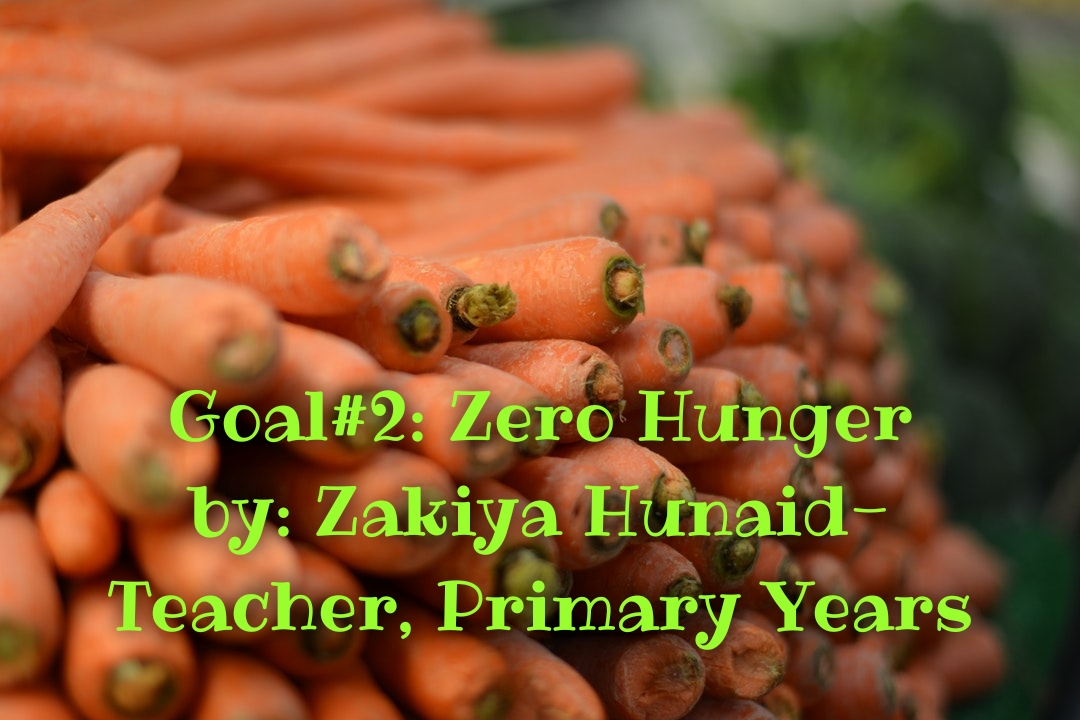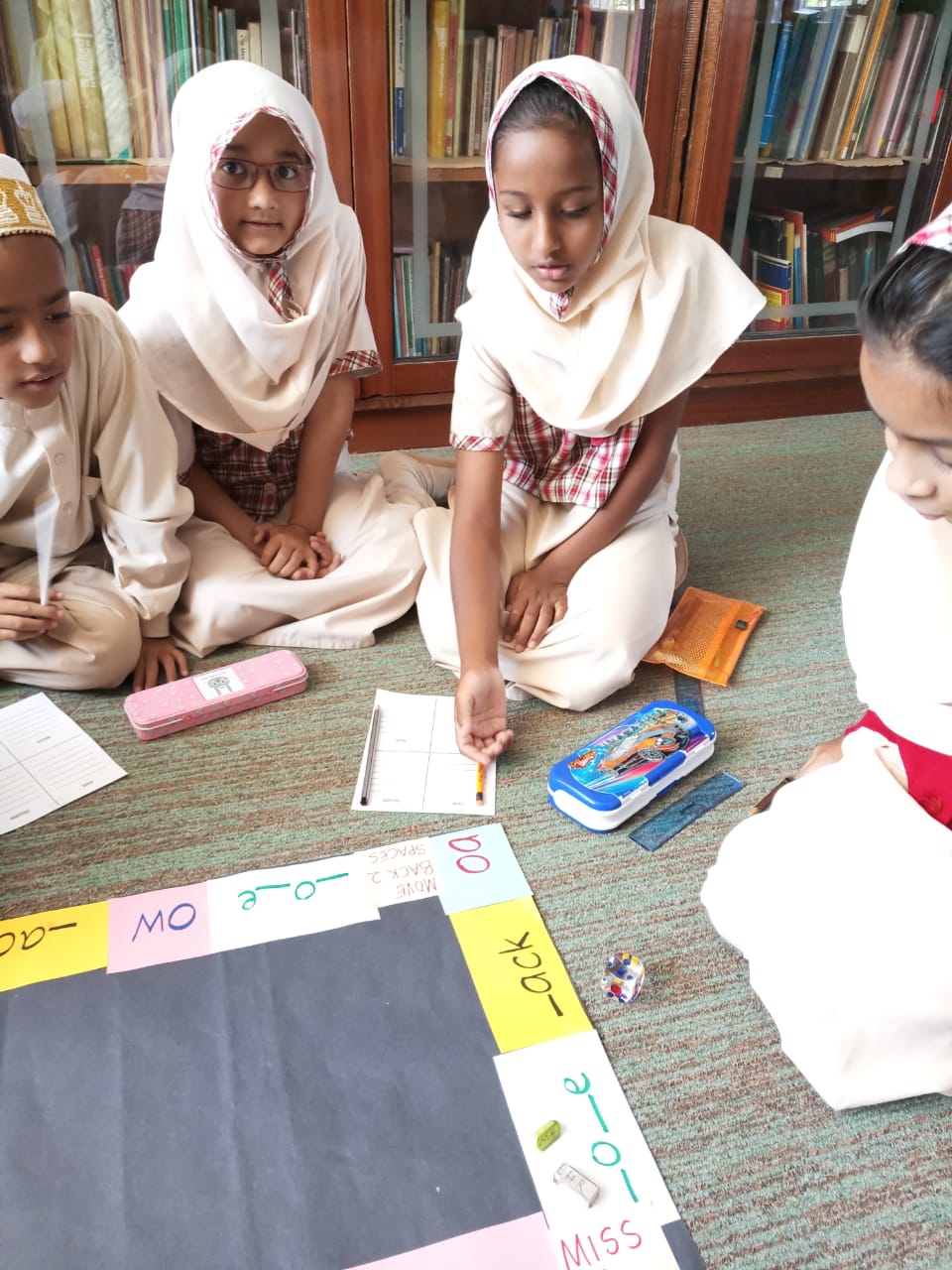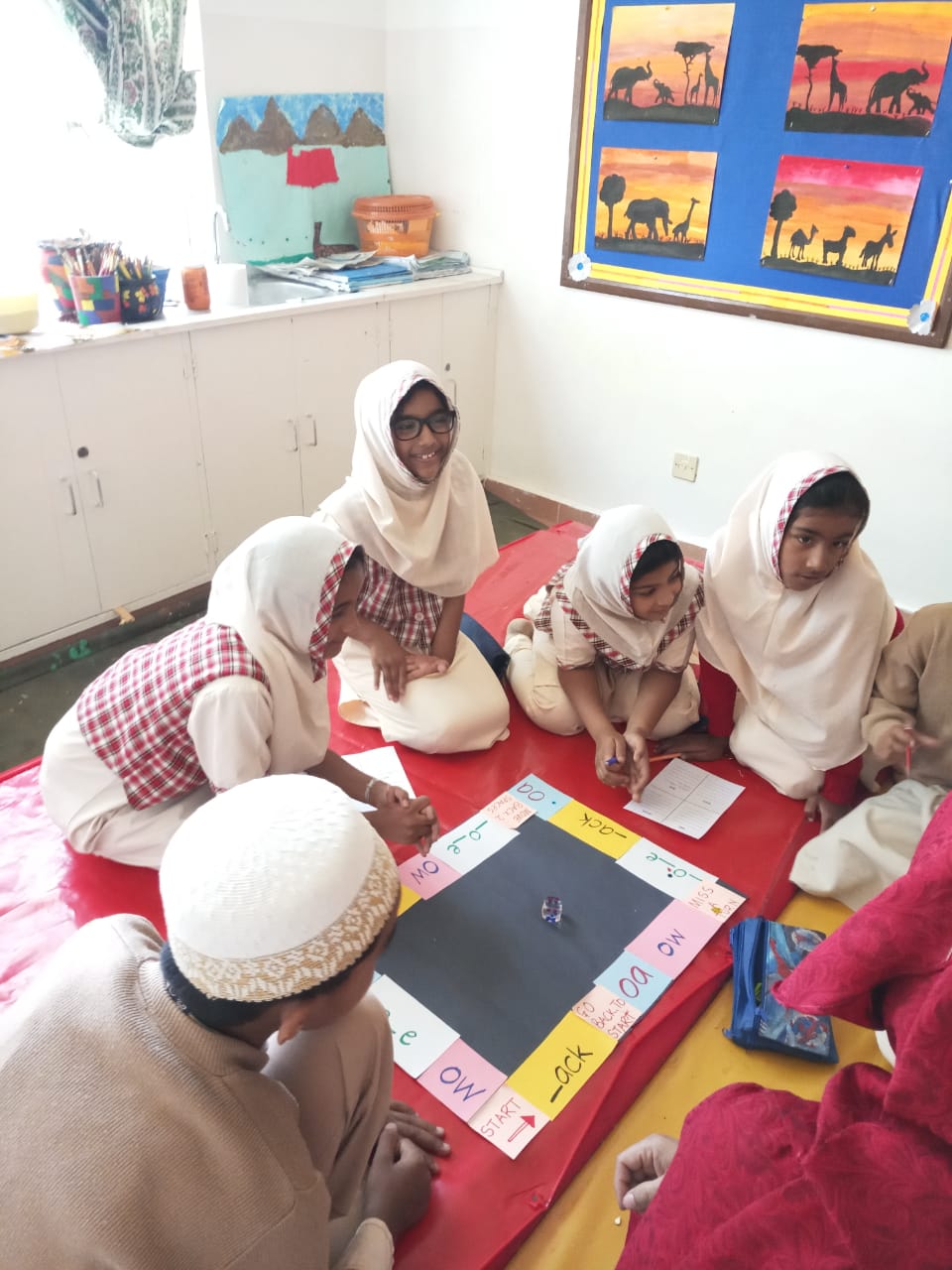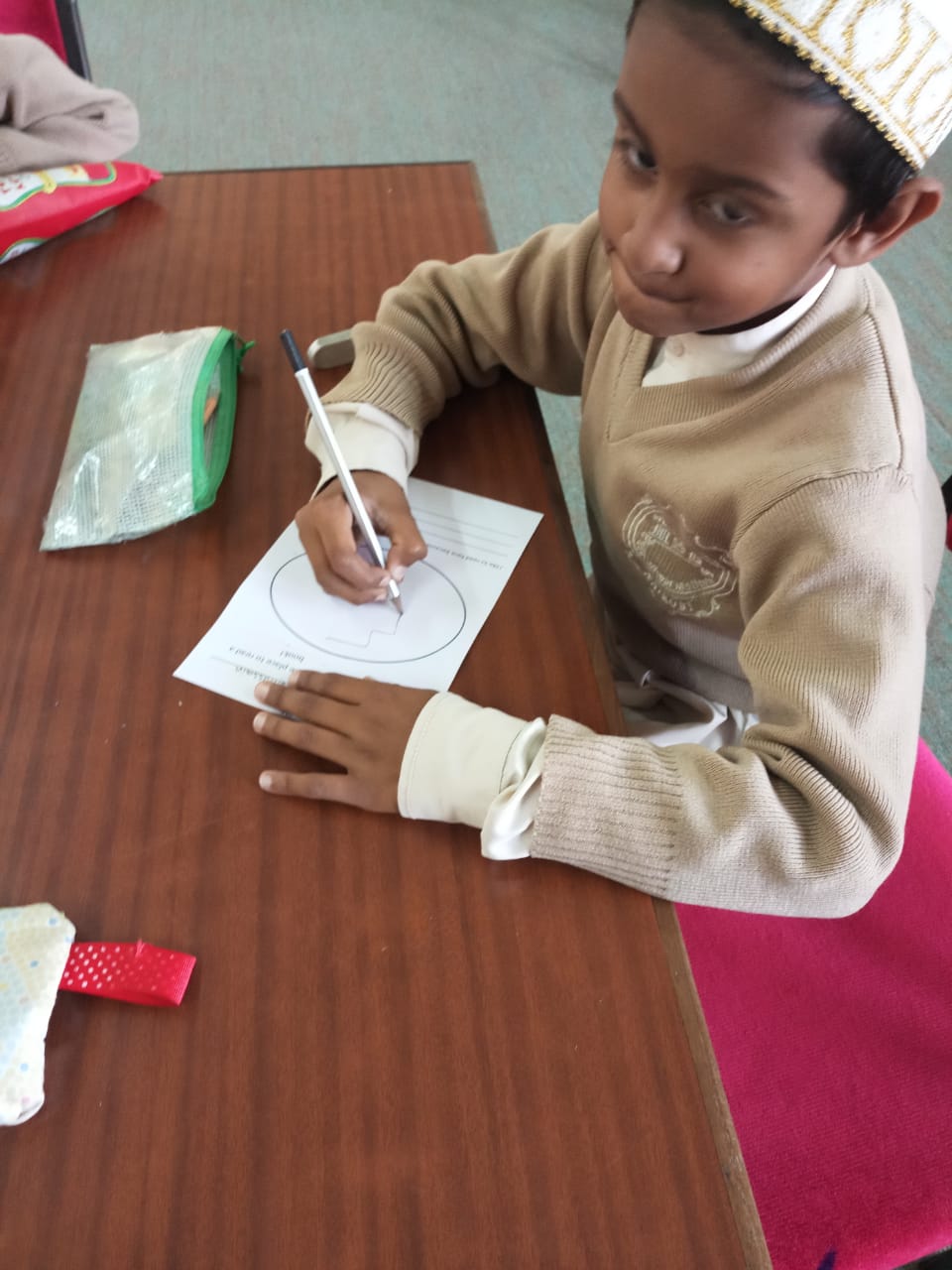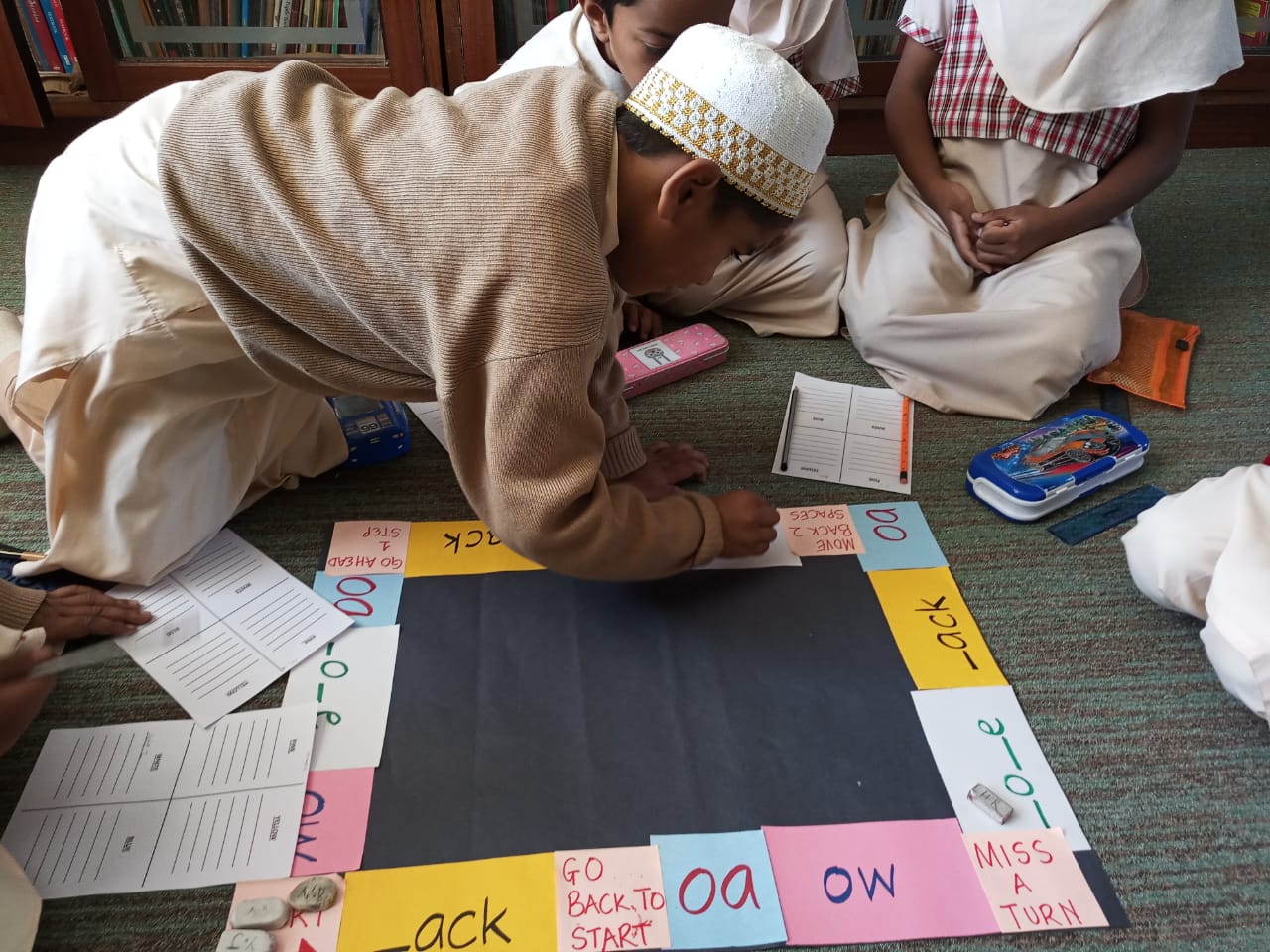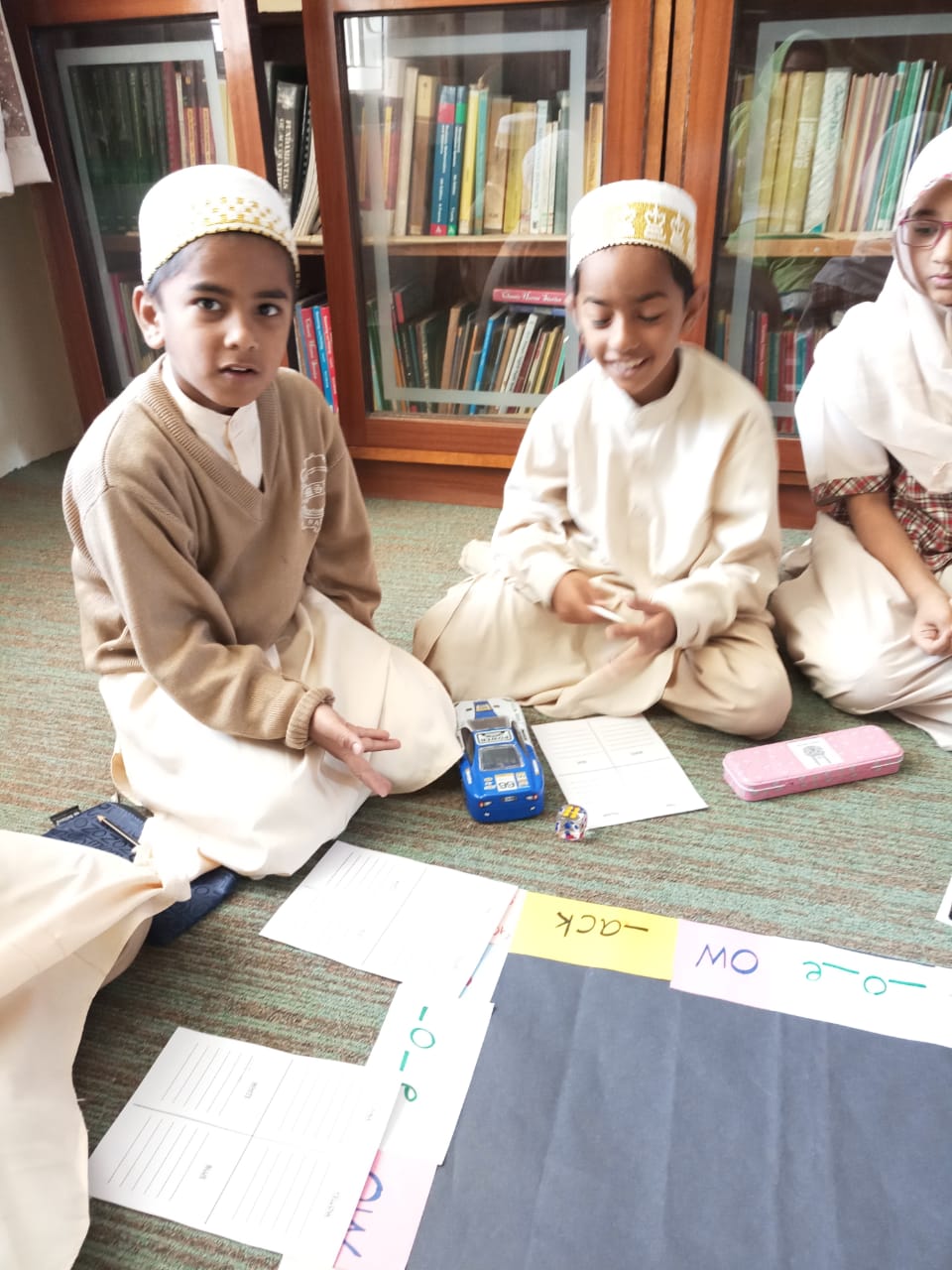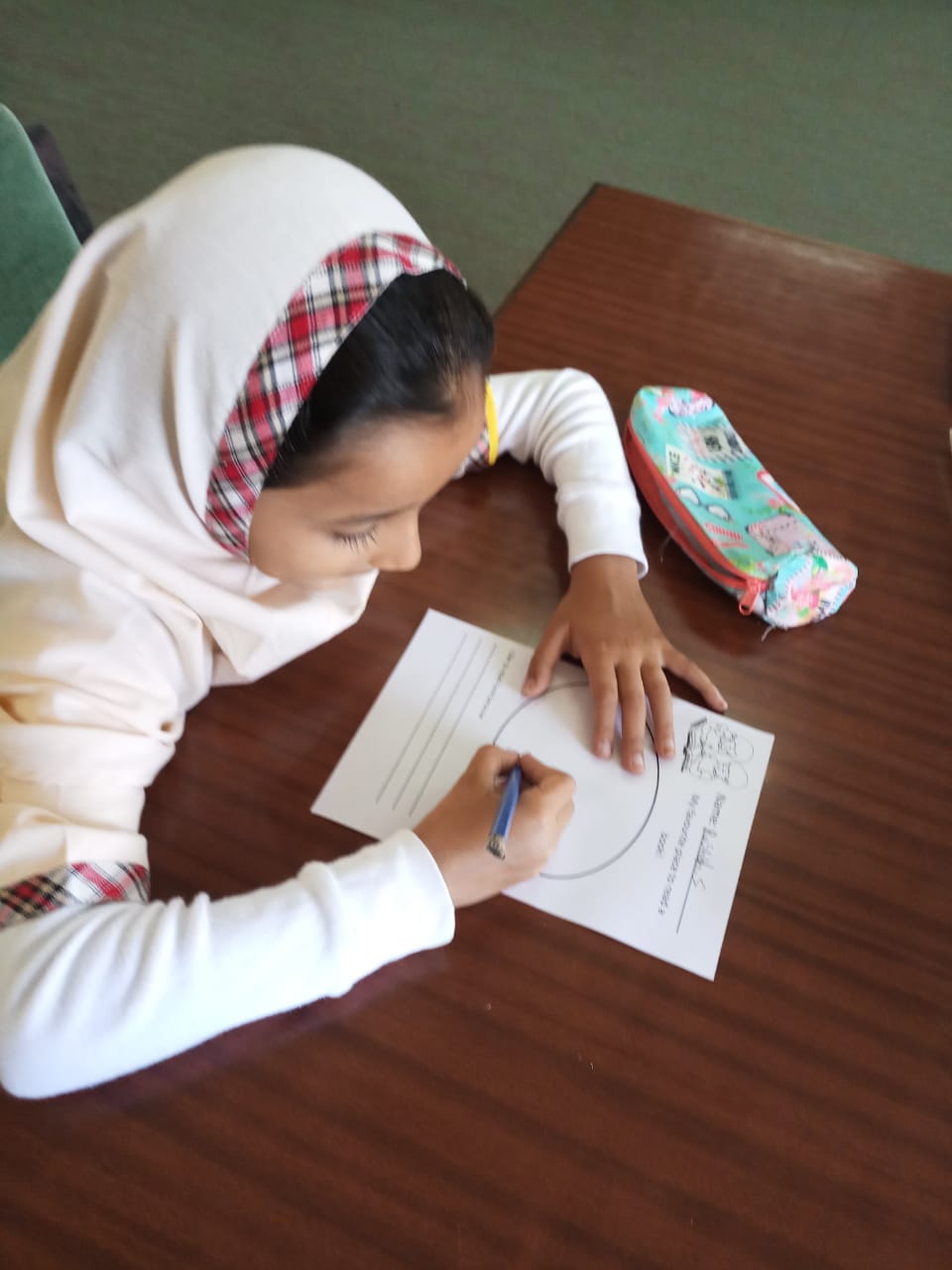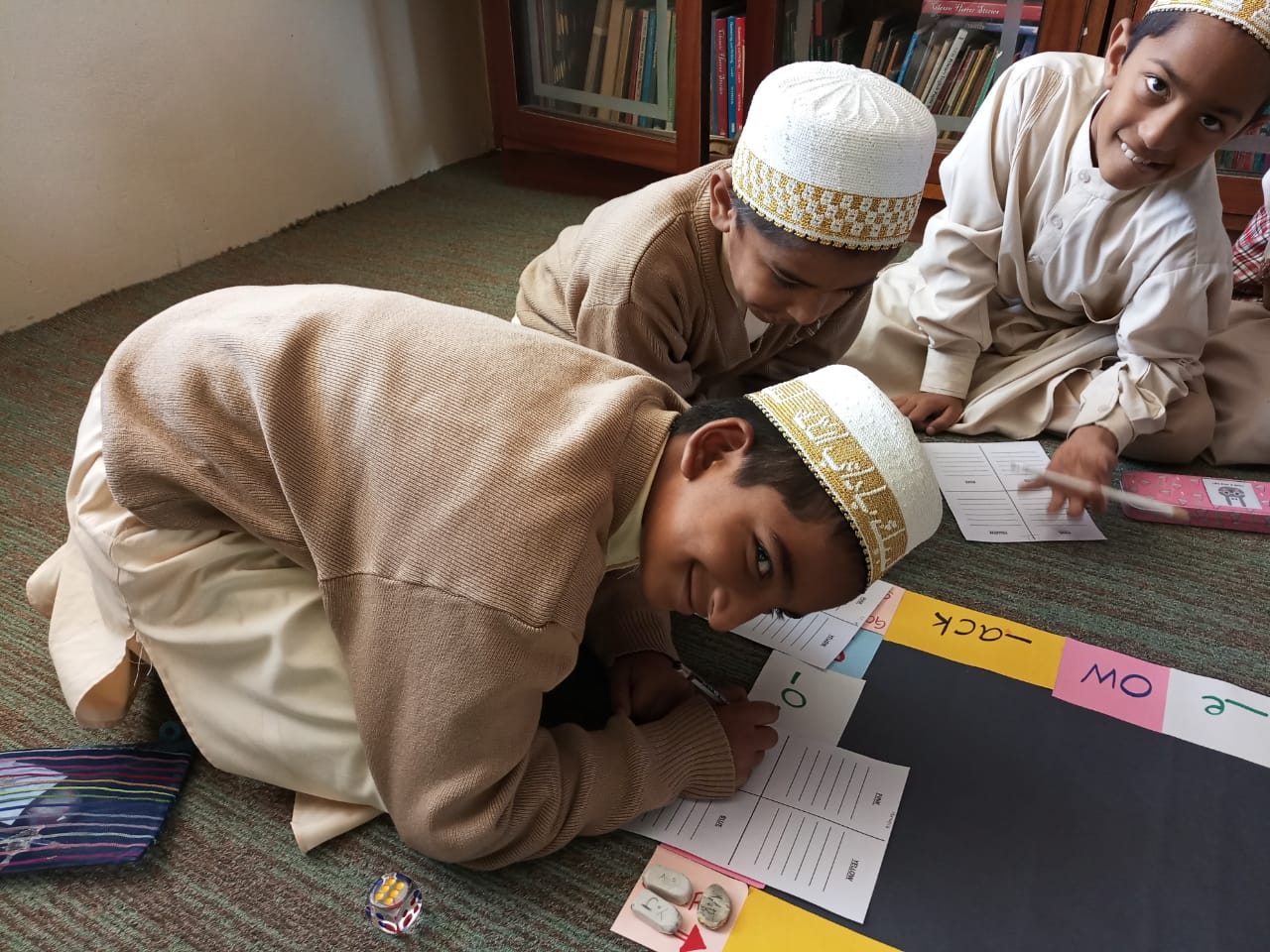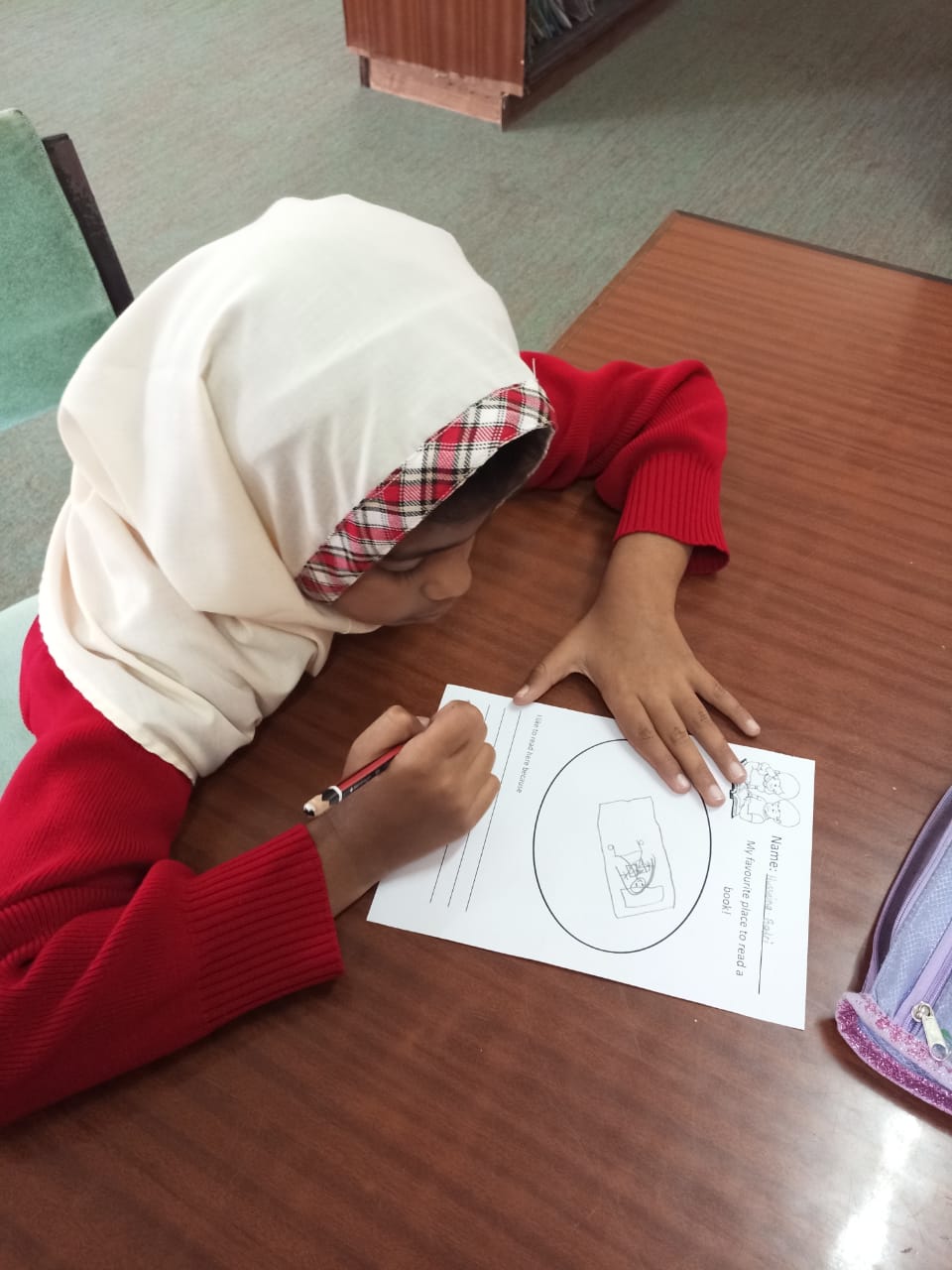786
‘If you don’t wake up now, we’ll be late for school!’
This sound no longer echoes the walls of the house every morning.
‘Hold on to your seats, we’ve got 2 mins to get to school!’
My race car driver skills have been put to rest.
‘Bhen, I haven’t completed my work because I forgot to take my book with me.’
I’m no longer torn between saying, ’Sorry, I will not accept late submission.’ and ‘Do you think that is a valid excuse? I expect more responsibility from you all. Please give it to me tomorrow, no later than that!’
I’m sure you get the point…
Even though I truly miss going to school and being in the classroom with my kids, there was no pause to the daily grind, no time to enjoy relationships in the frenzy of nonstop activities.
Although the circumstances under which we’ve been granted this pause is not ideal, it was no doubt much needed!
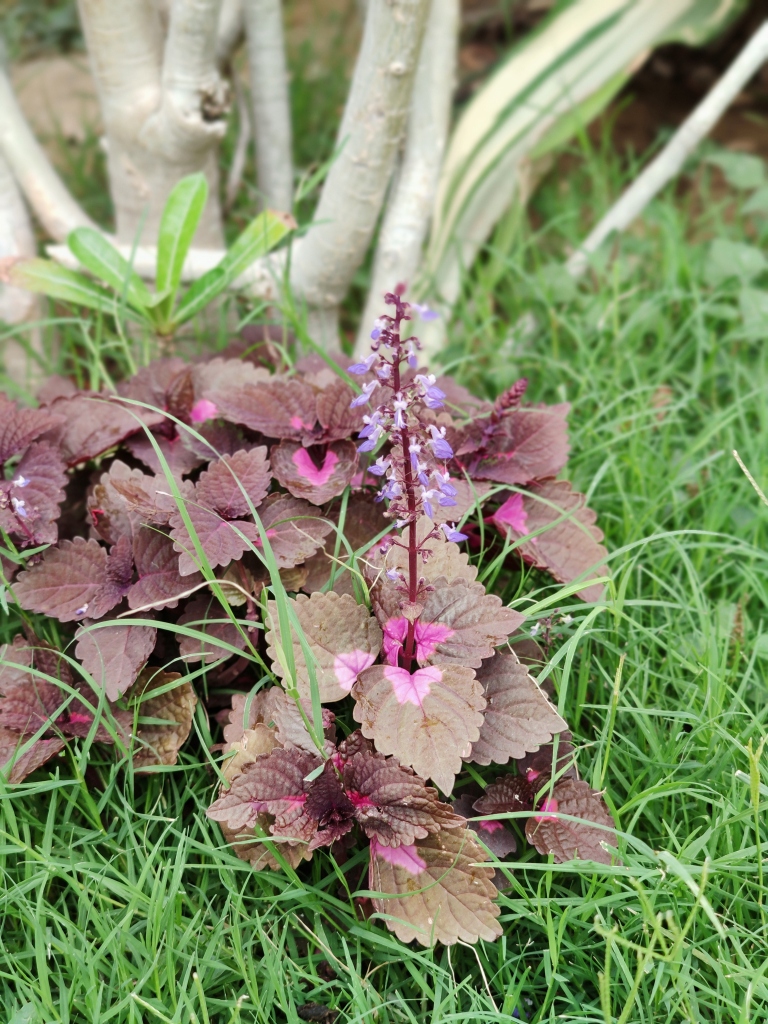
Pause to process, to reflect, to reset.
I have been able to connect with my students on a more personal level with conversations on a lighter note. Pause to strengthen my bond with them – one which I intend to keep throughout their lives in the future.
I can have random conversations with my kids at home where we laugh and joke about things. I’ve been given pause enjoy and appreciate their childhood, all things that were mostly lost in the daily grind.
Being completely candid, I can now even enjoy every bite of my breakfast! Then, wake up the kids and take my time to serve them theirs. Life’s simple pleasures.
Most importantly it’s time to rejuvenate!
To restore our energy, clear our minds, give fresh starts and heal any wounds.
I hope it is in the near future that we can be amidst the hustle and bustle of our students on school campus; listening to the sound of the bell between periods; once again feeling that human connection of being face to face in each other’s presence.
But did we really get the time to appreciate our relationships?
Let’s come out of this stronger, for a better round two – refreshed and renewed- mind & body, heart & soul!😊
-Rashida Kakal

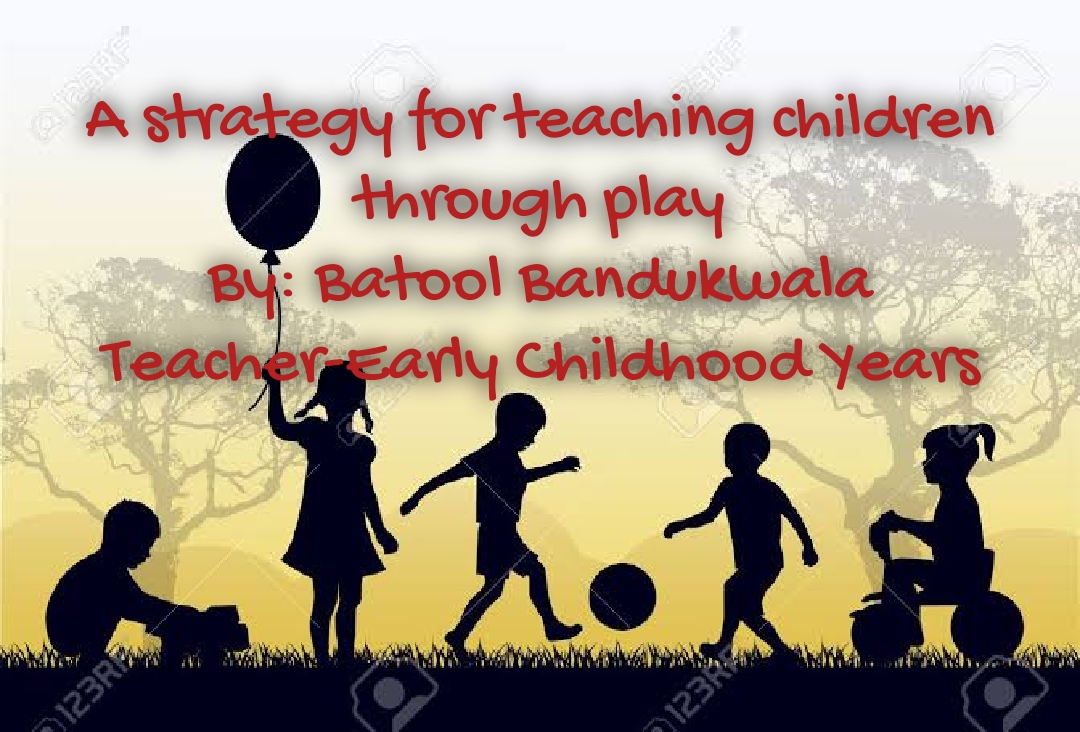


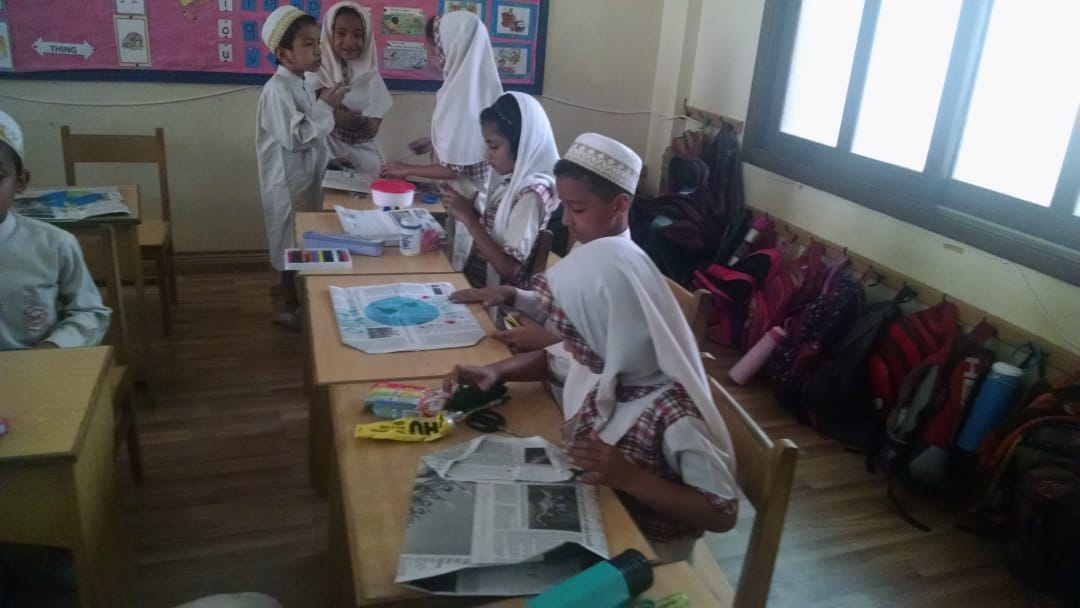

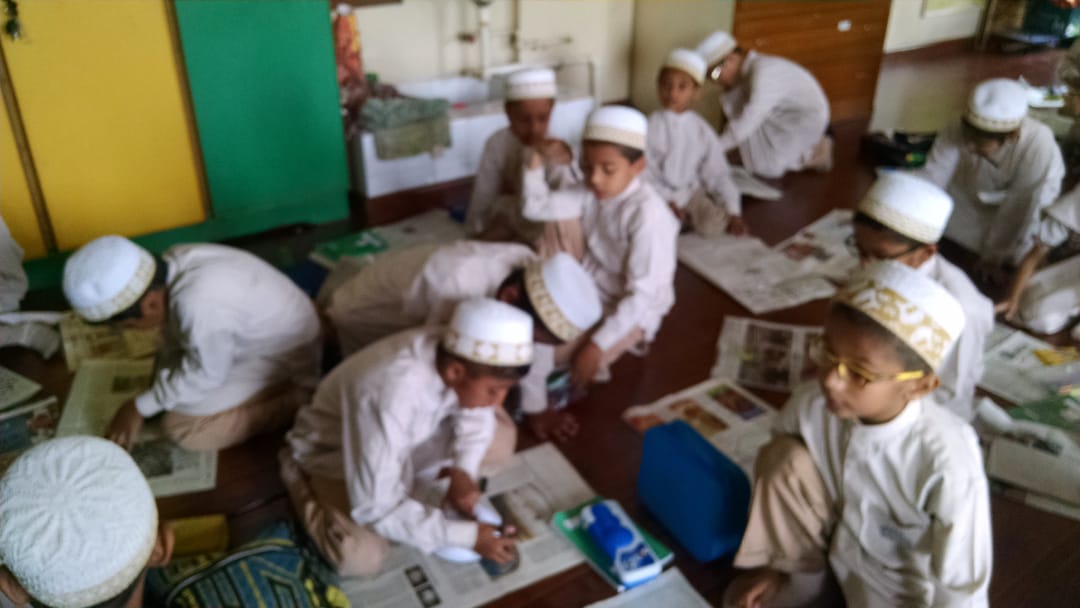
 The young masters of class 4th is using degradable material and saying no to plastic.
The young masters of class 4th is using degradable material and saying no to plastic.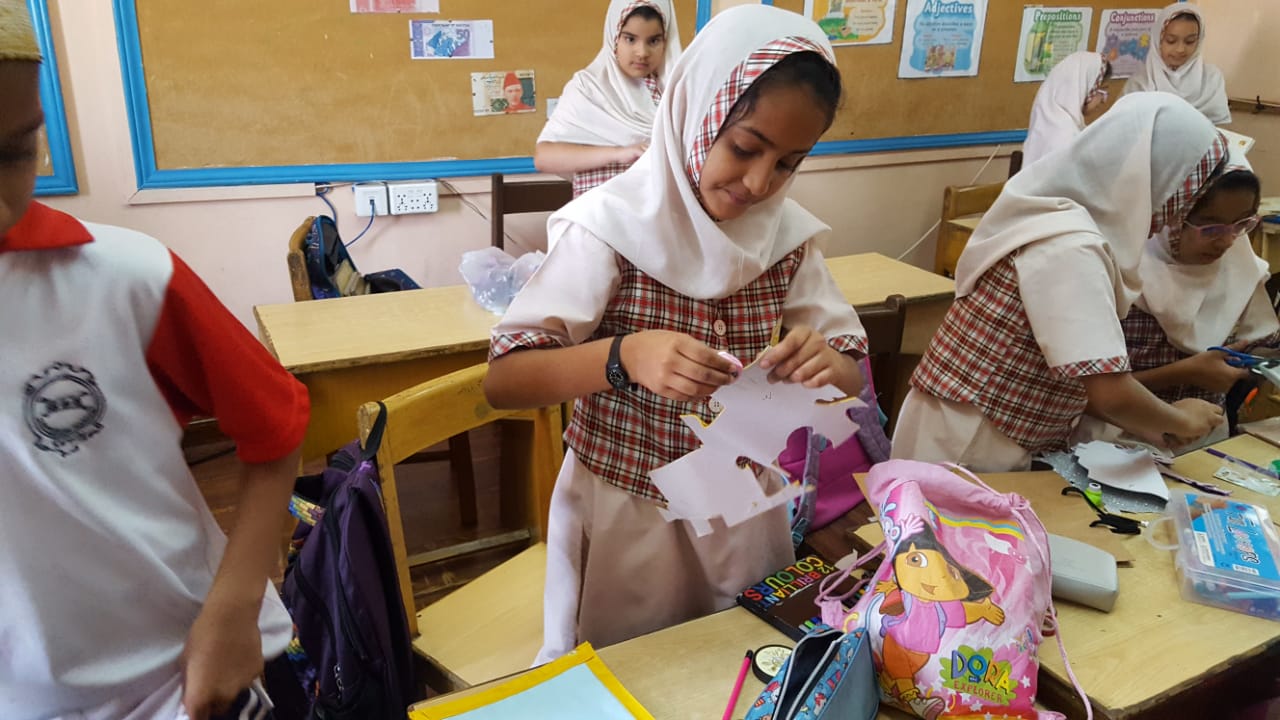
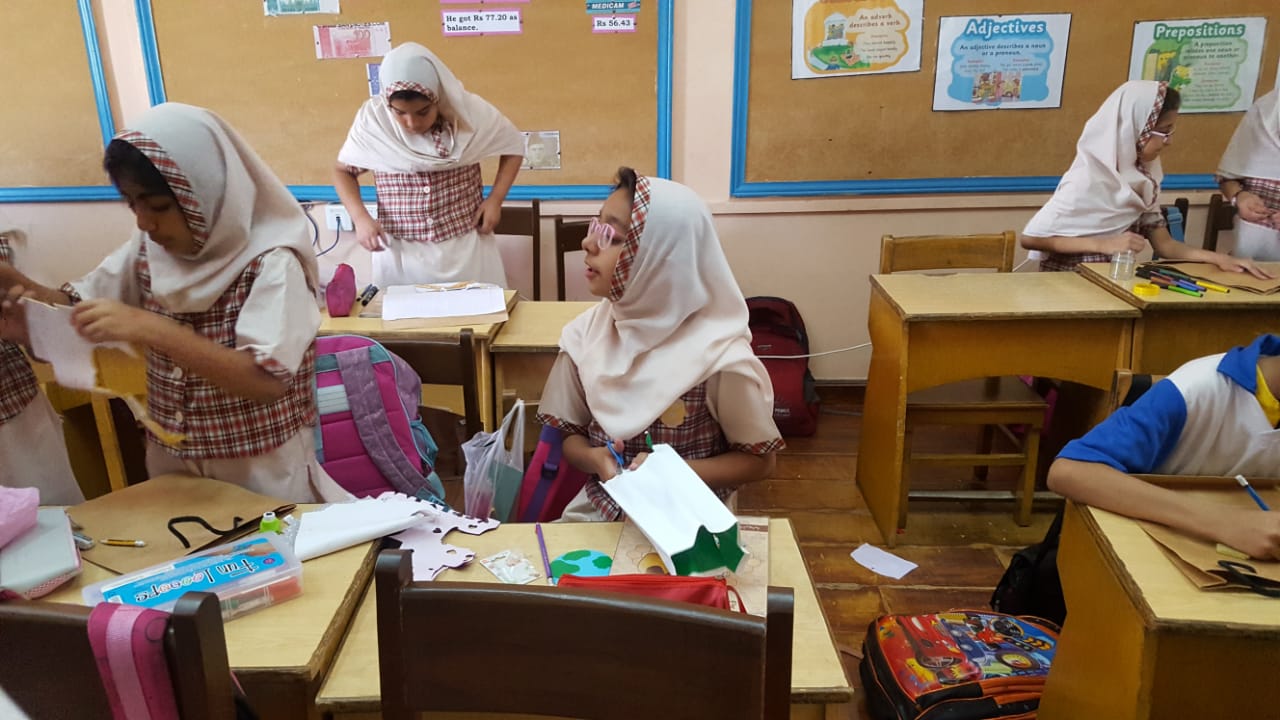
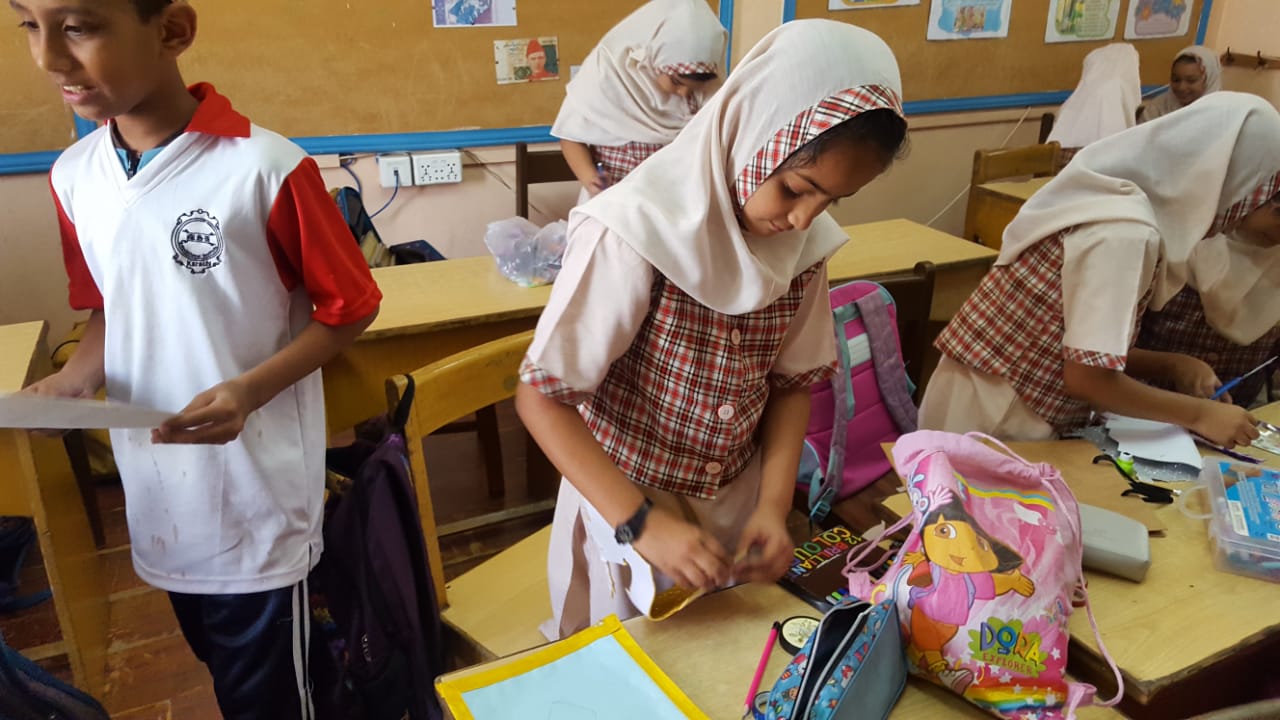



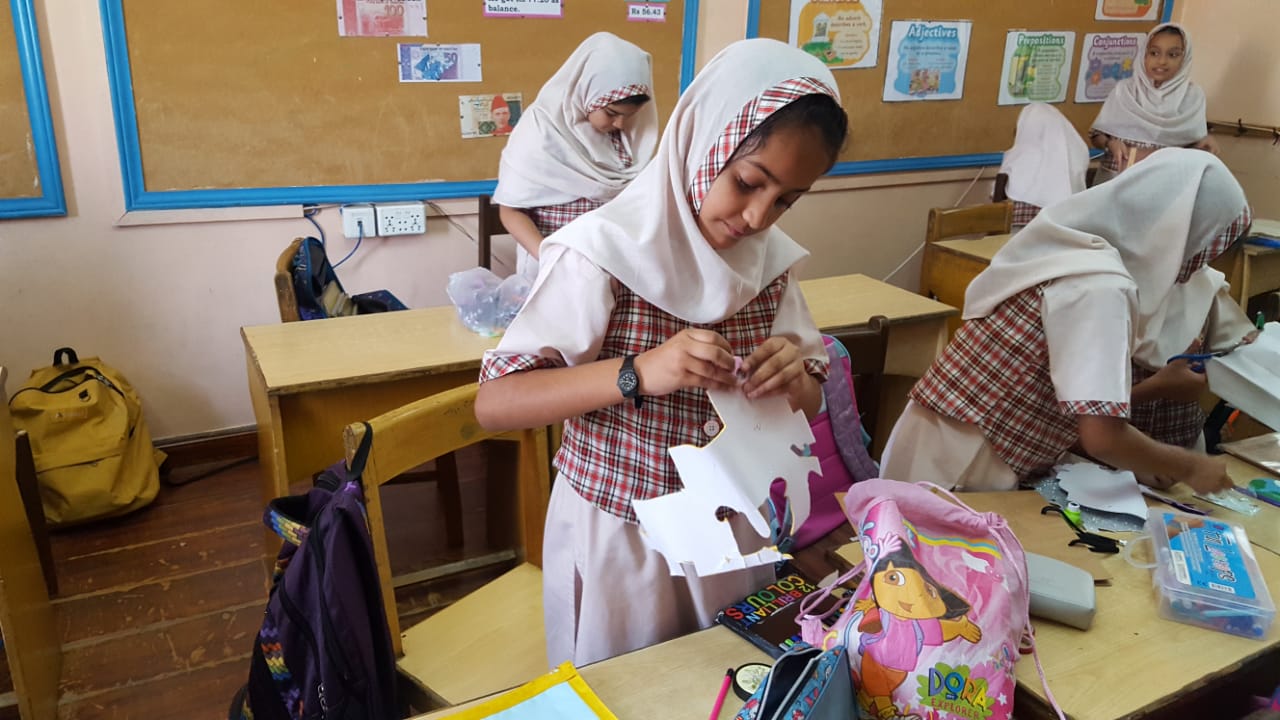
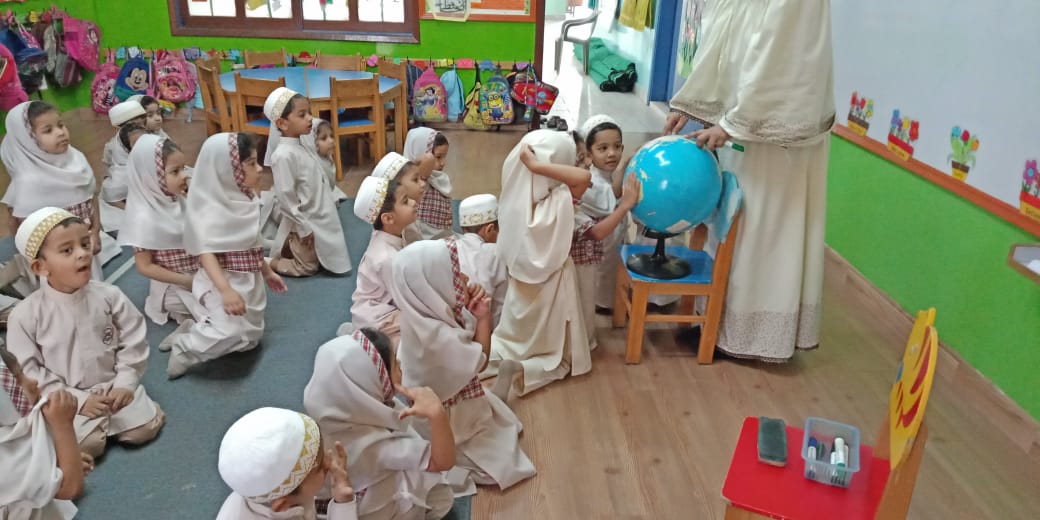
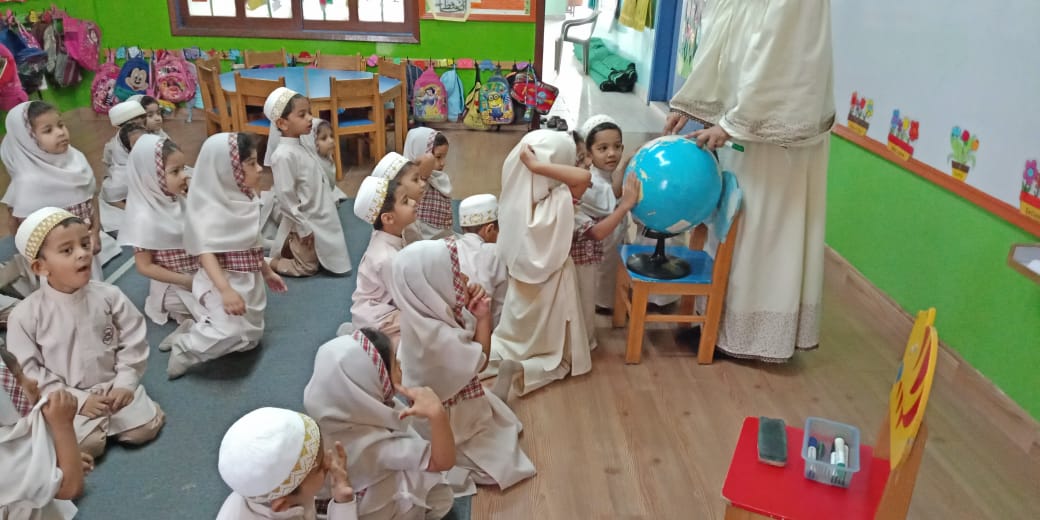
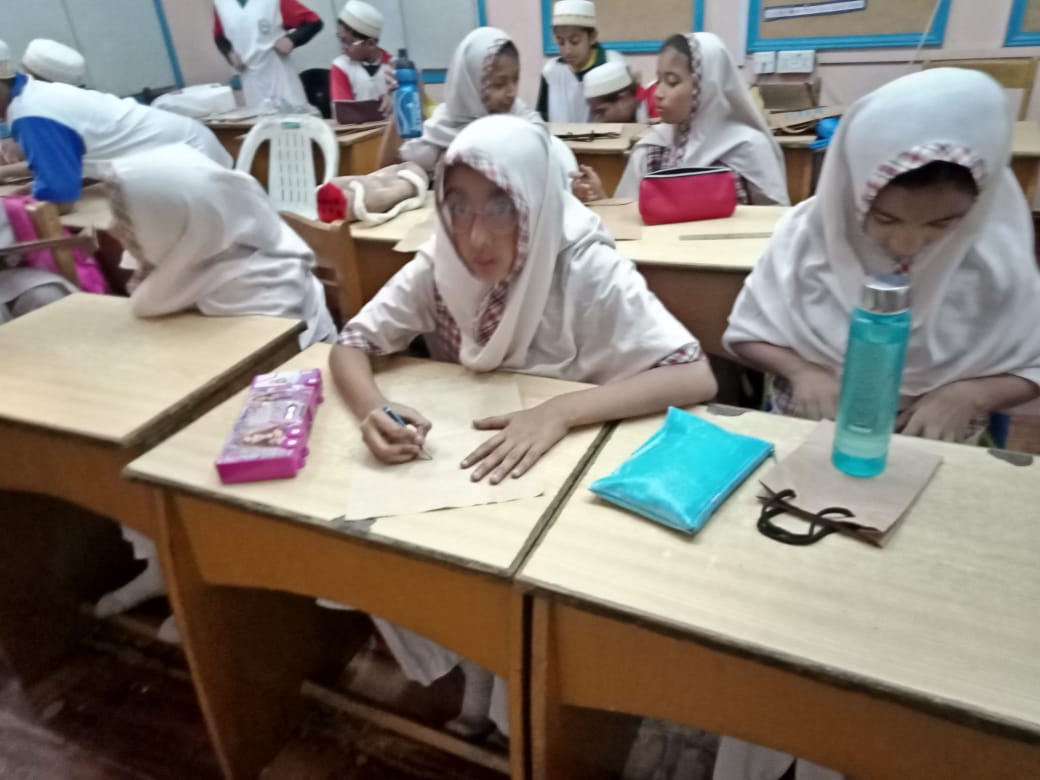

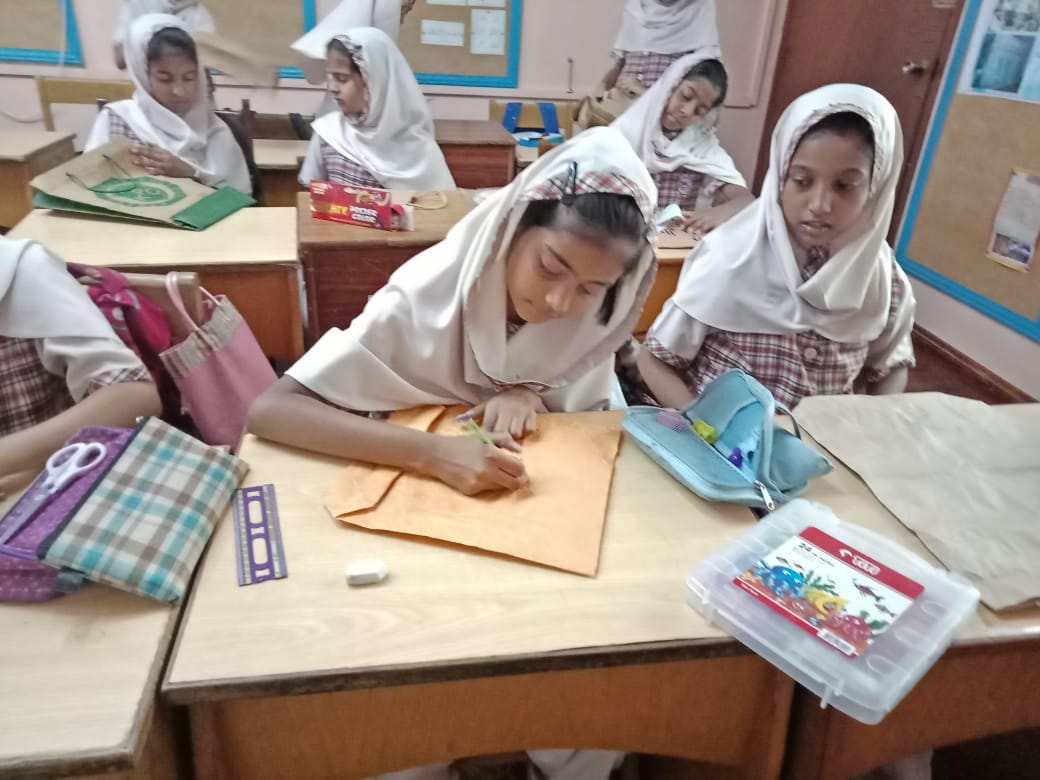
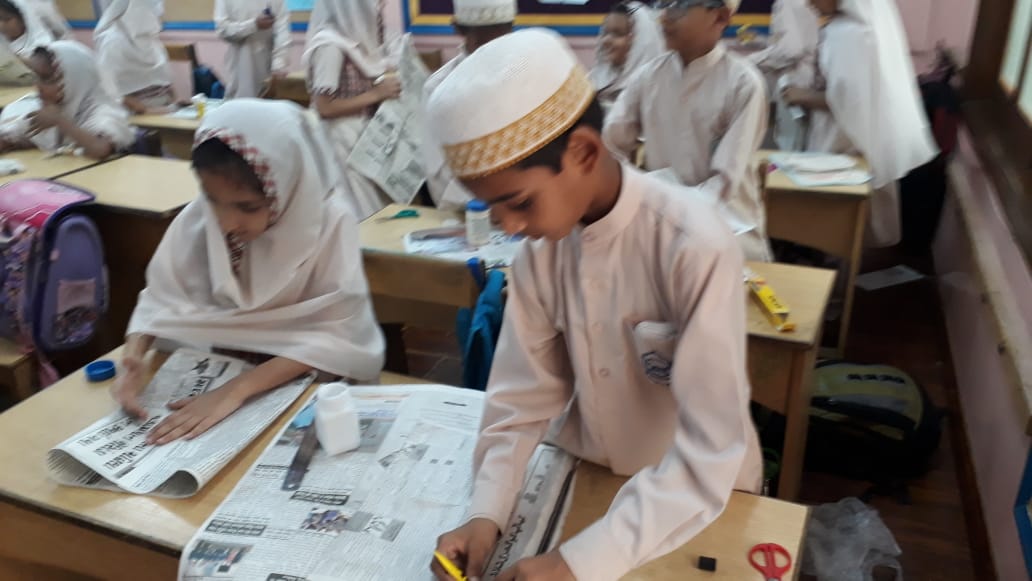


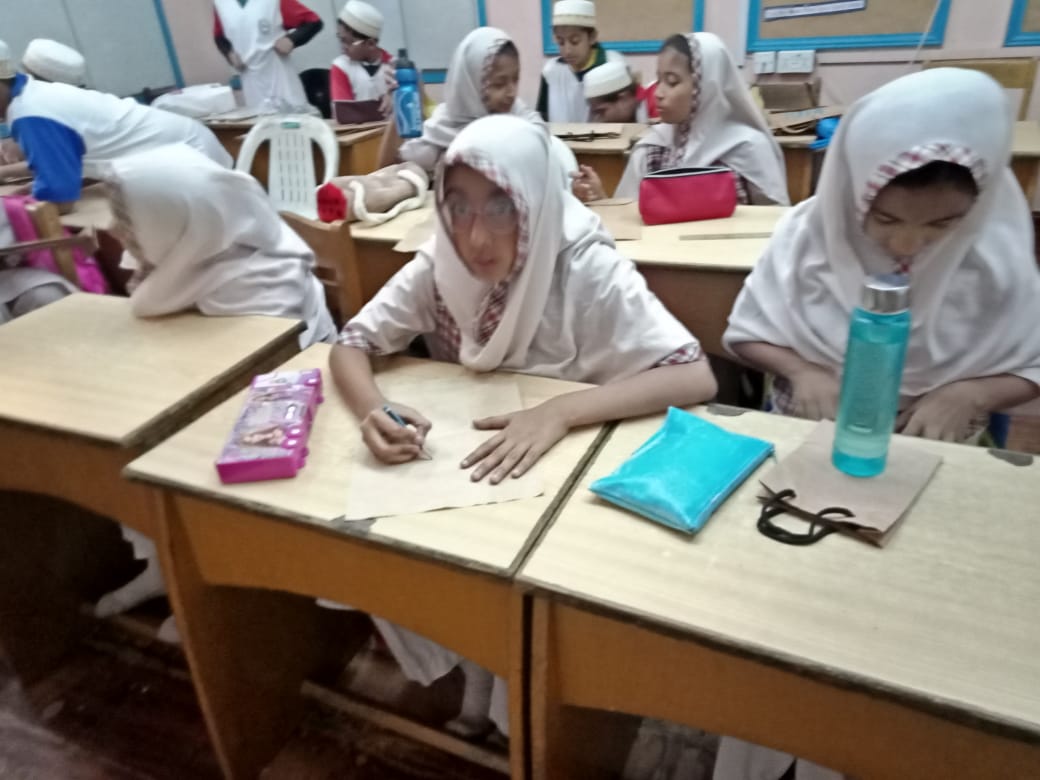
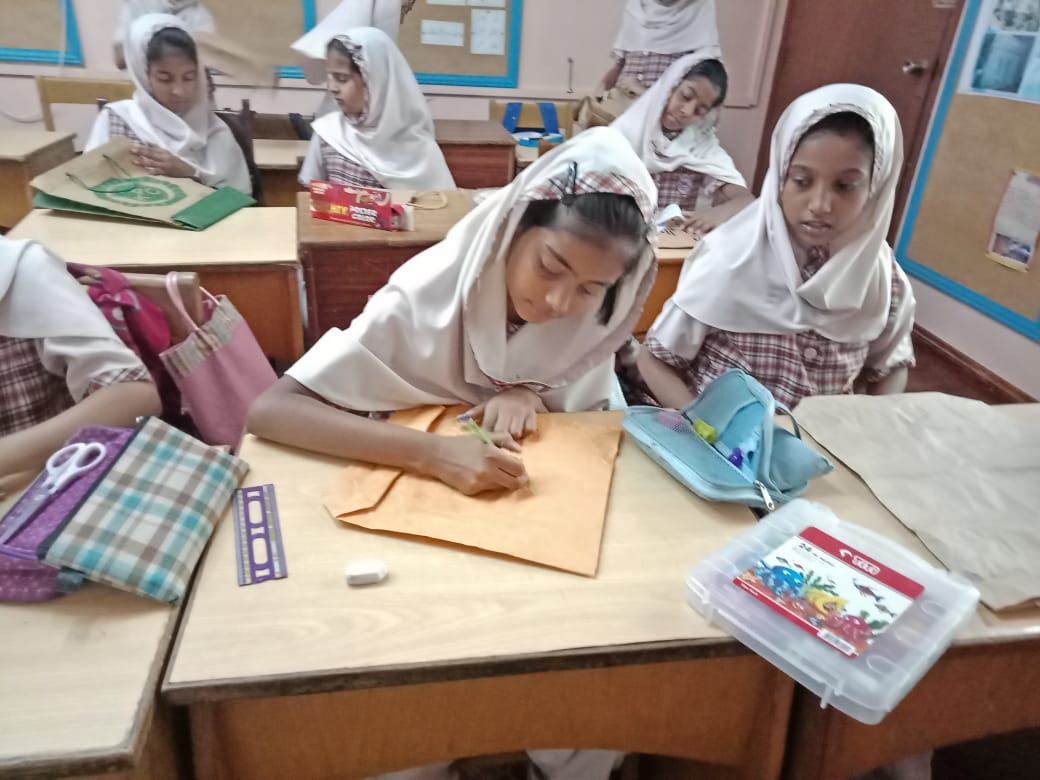
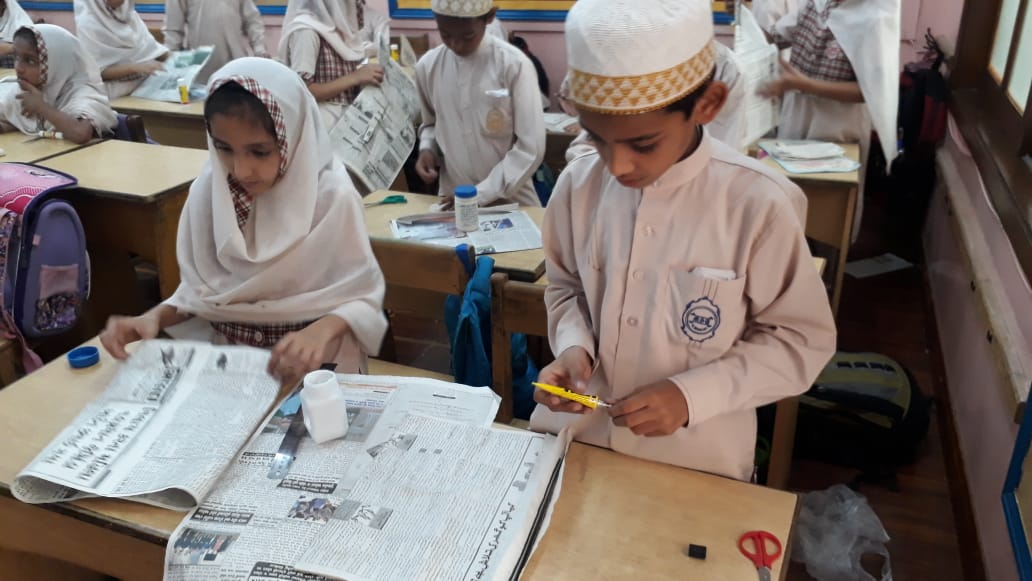

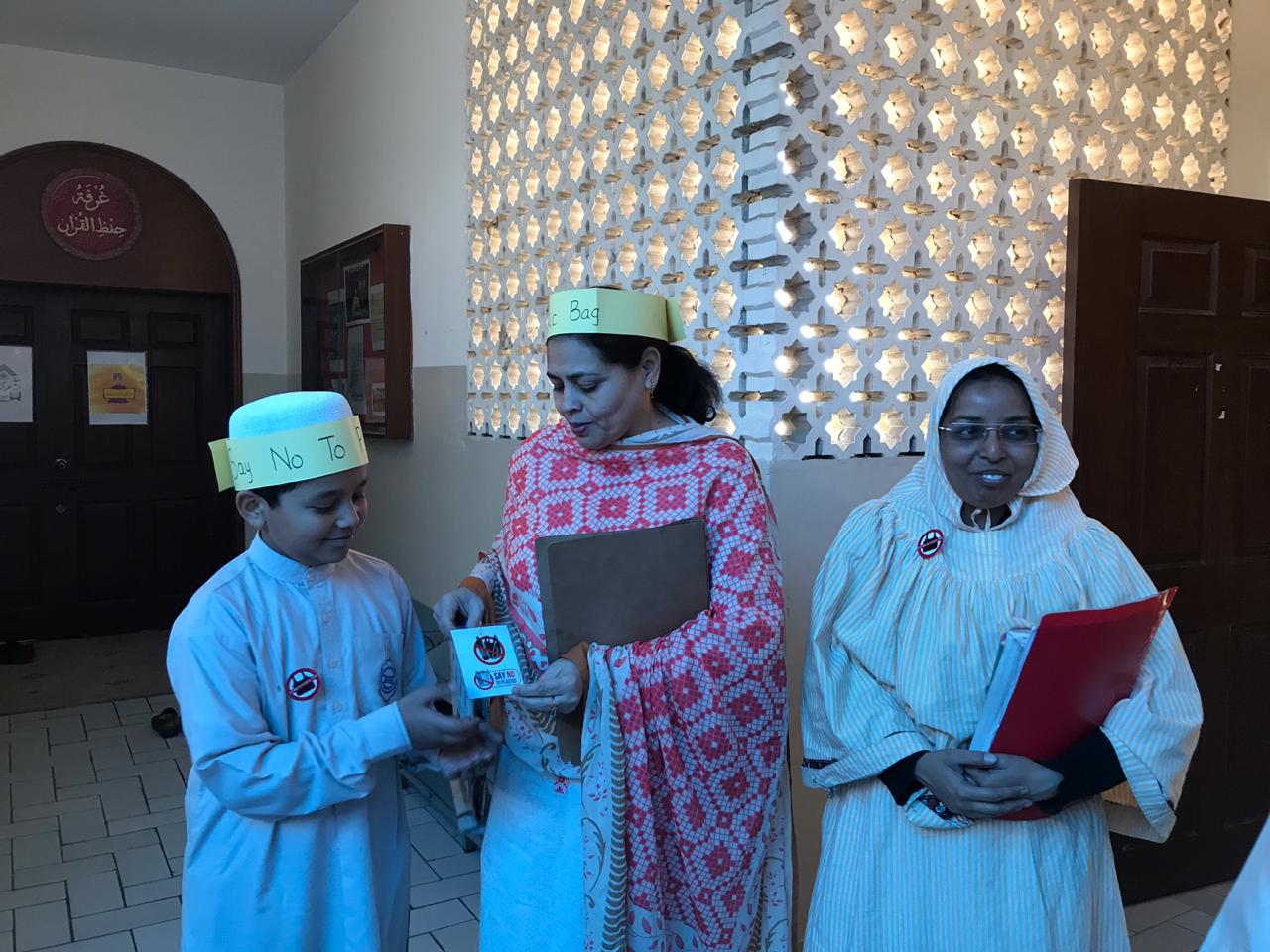
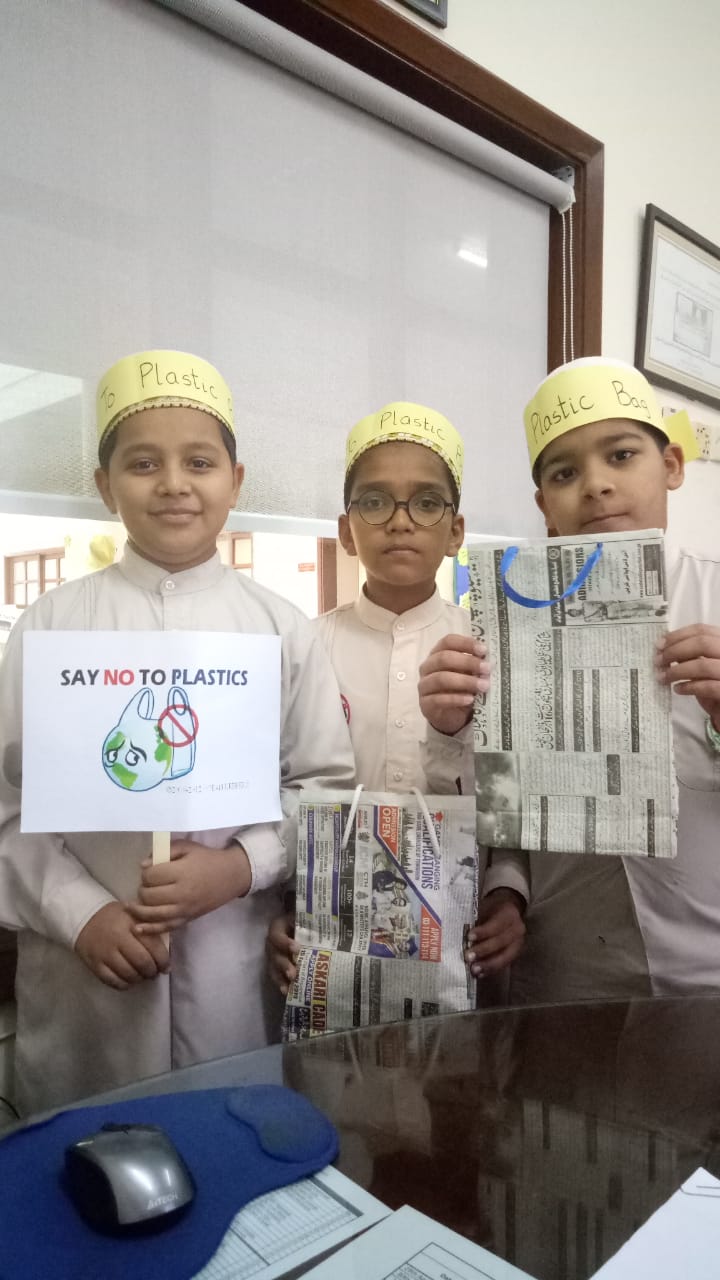

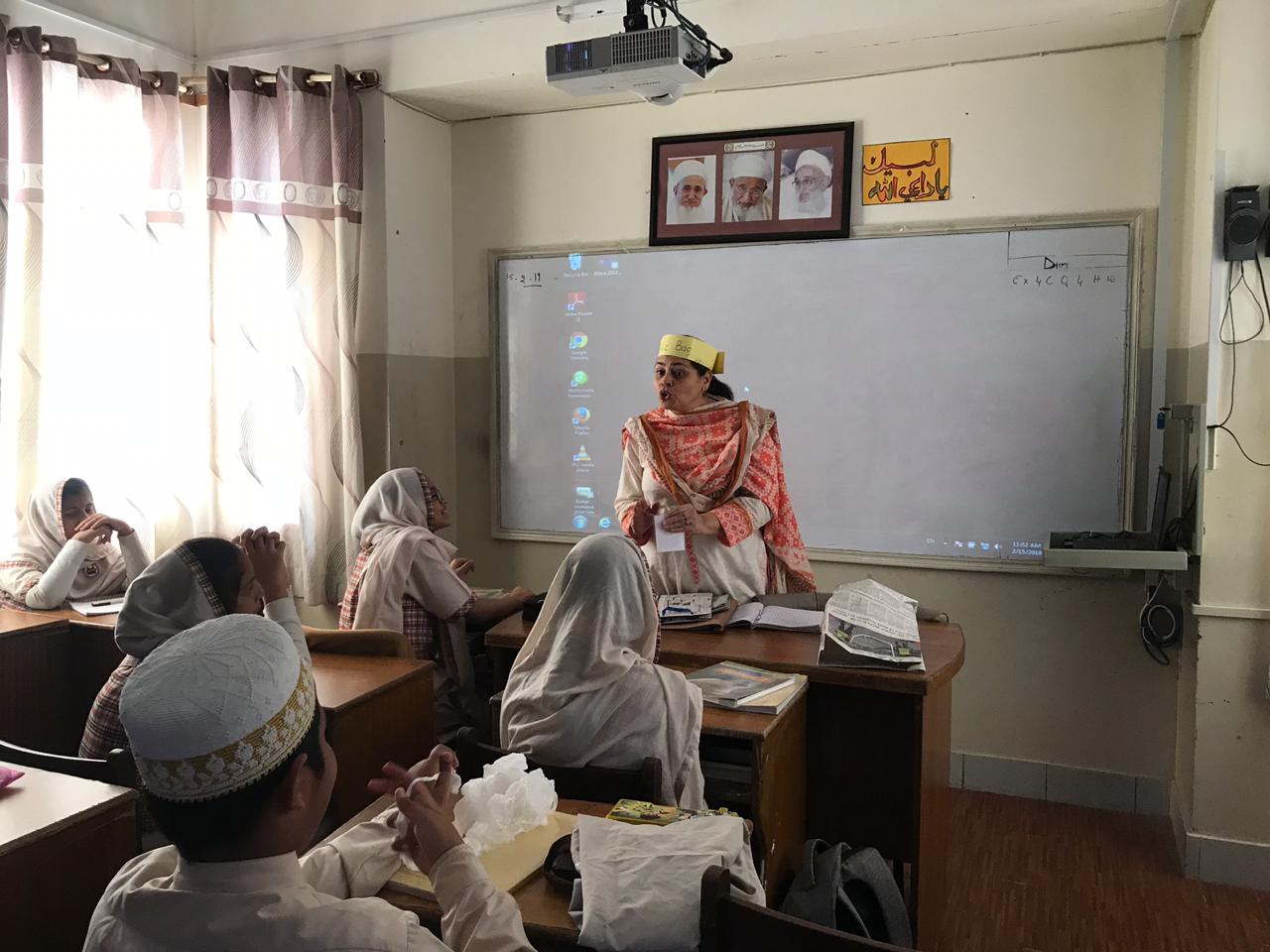 Mrs. Batul Hazari our horticulturist of the school conducted many environmentalist activities in her classes which included plantation and cleanliness of the surroundings.
Mrs. Batul Hazari our horticulturist of the school conducted many environmentalist activities in her classes which included plantation and cleanliness of the surroundings.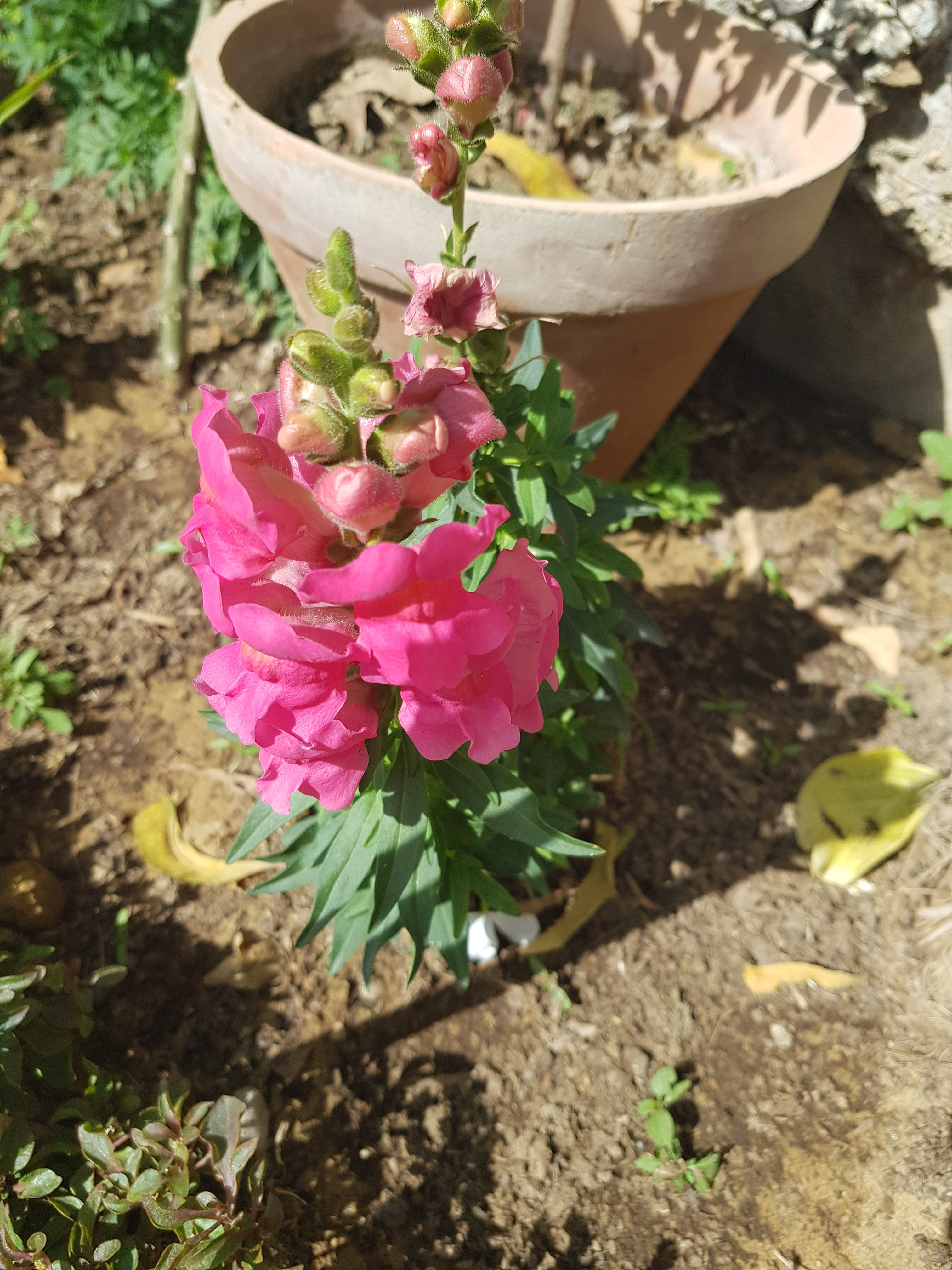
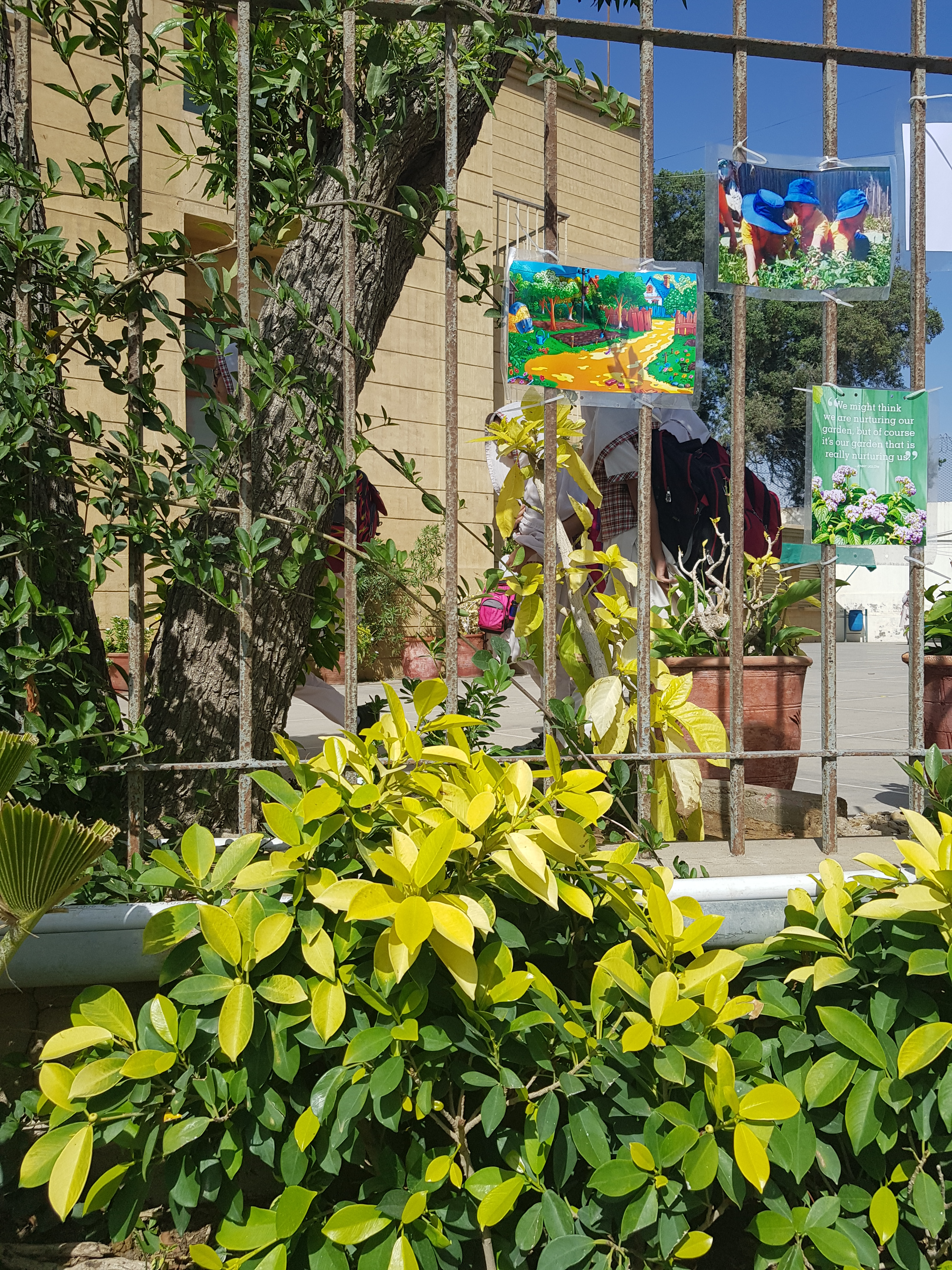
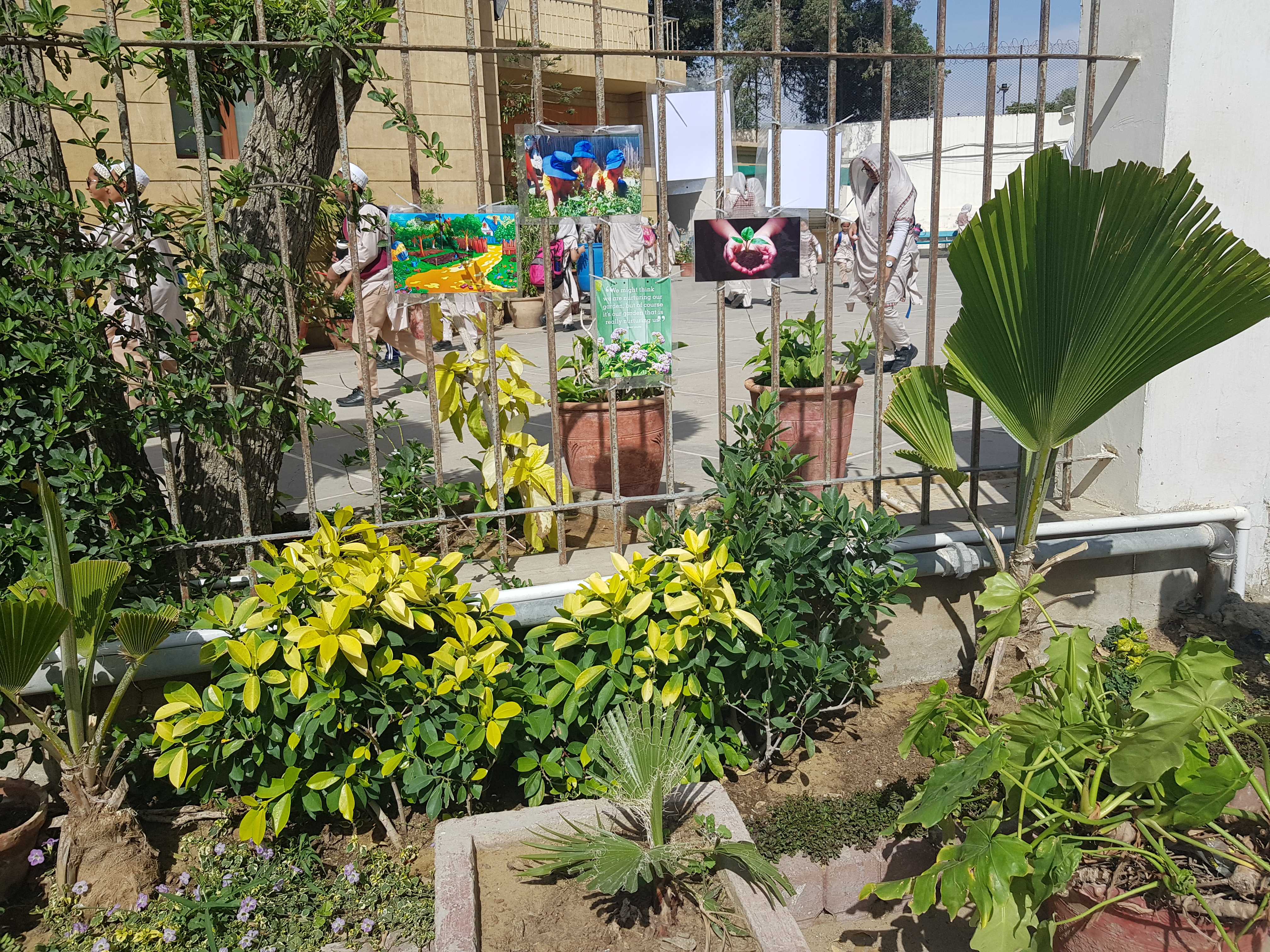 One great endeavour has been through presentations and distribution of badges and paper bags for use by students, teachers and parents.Primary section believing in safe environment and pollution free environment has been making paper bags and giving them to the malls and various departmental stores from last five years. Bringing awareness to the customers and administration of that store.
One great endeavour has been through presentations and distribution of badges and paper bags for use by students, teachers and parents.Primary section believing in safe environment and pollution free environment has been making paper bags and giving them to the malls and various departmental stores from last five years. Bringing awareness to the customers and administration of that store.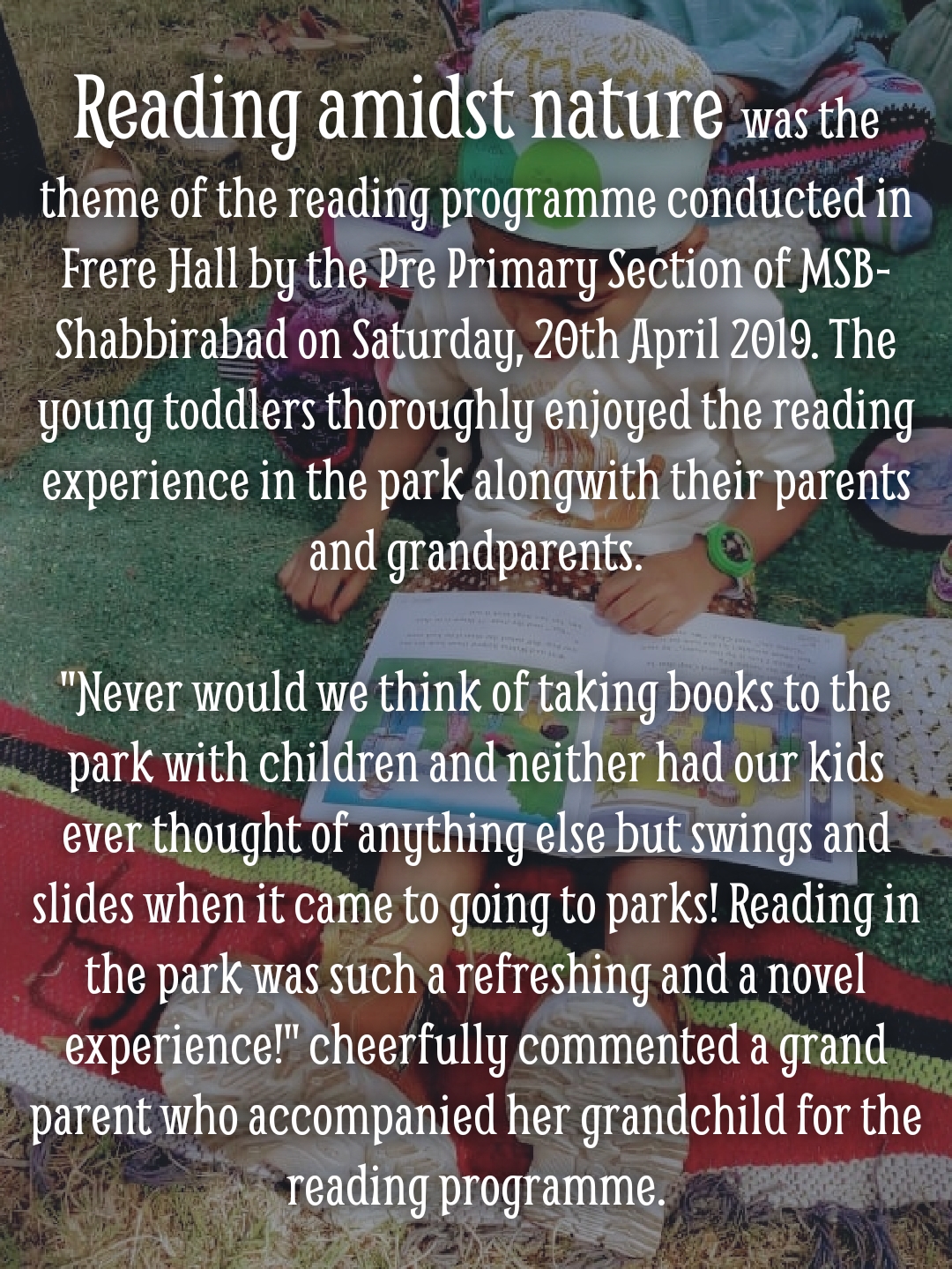
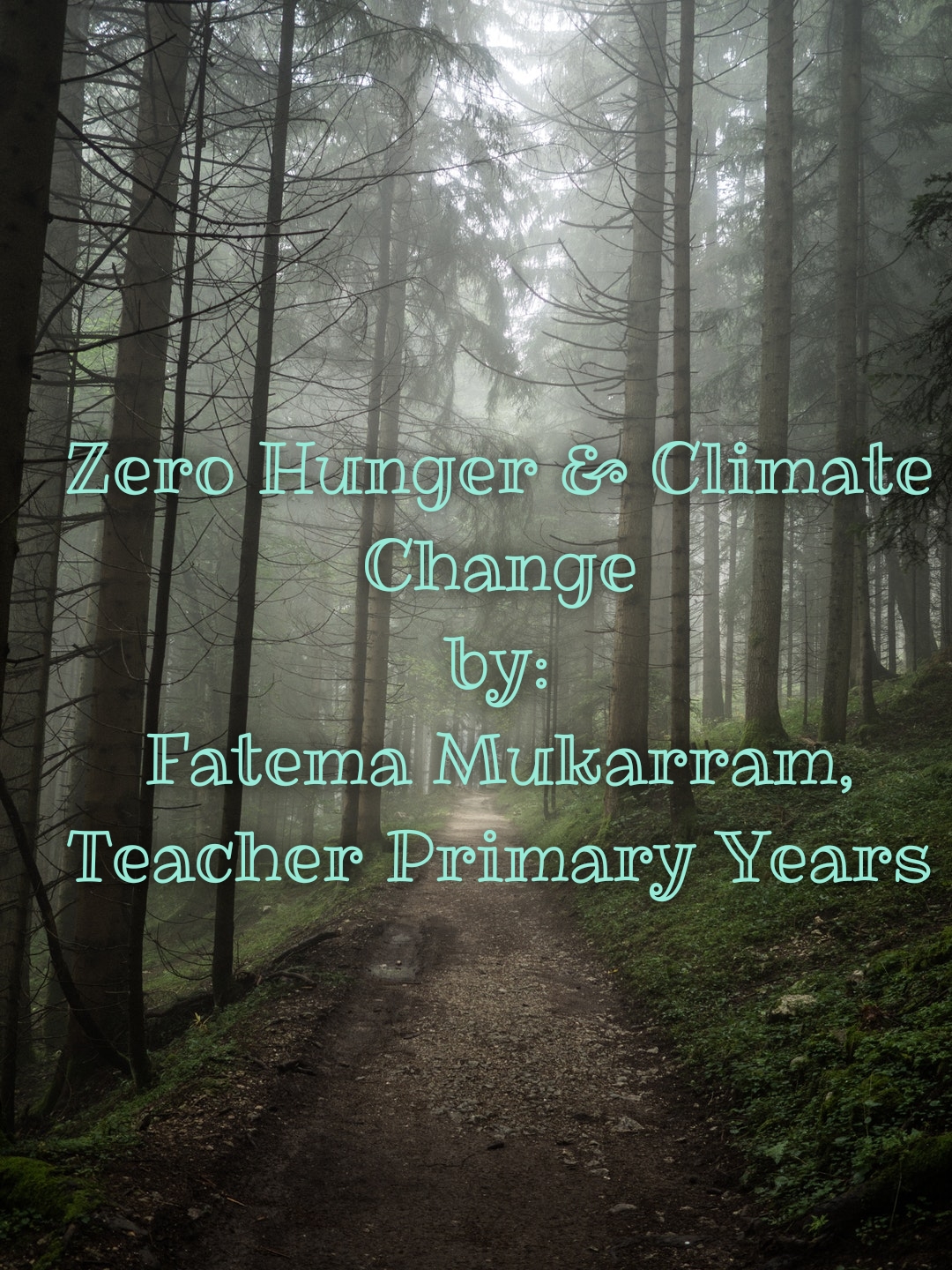
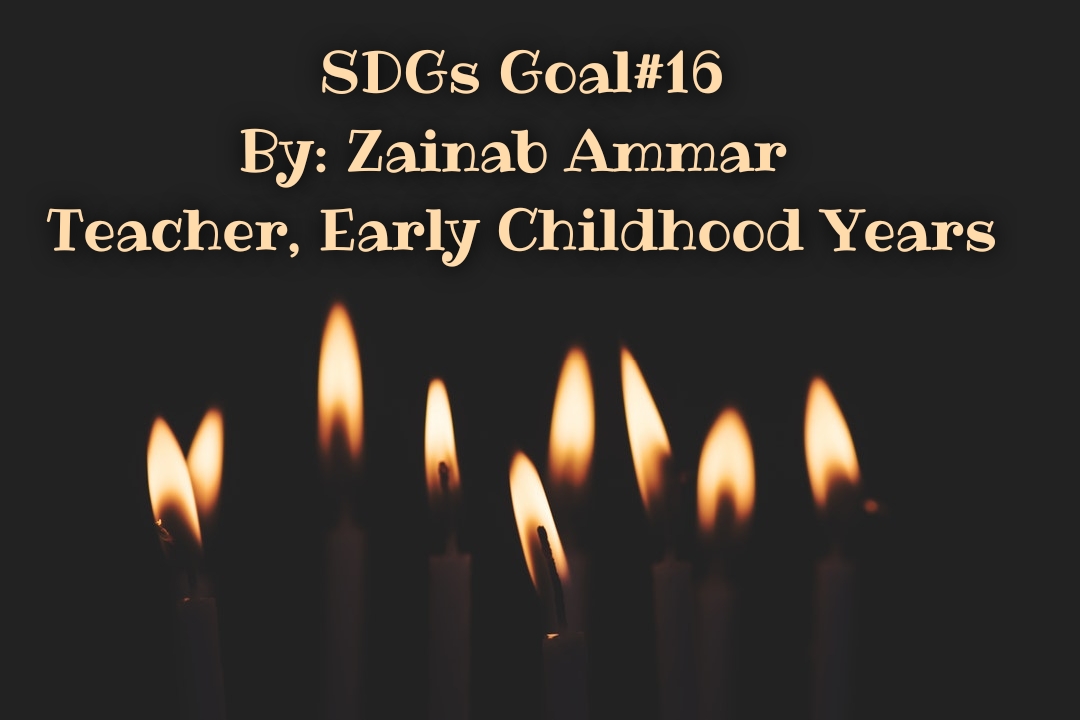
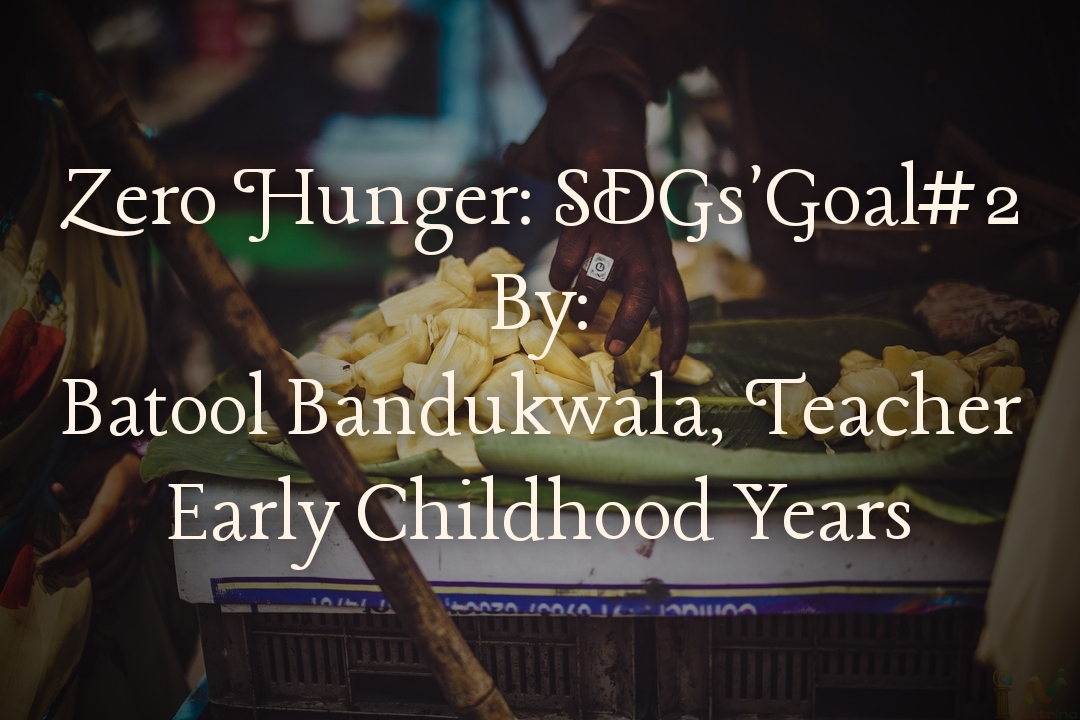 There are many challenges that Pakistan has to face as its sustainable development goals. I would like to mention the goal that is a serious challenge right now, and it is the challenge of hunger. The 2015 Global Hunger Index (GHI) report- the tenth is an annual series- presents a multi dimensional measure of national, regional and global hunger. It shows that the world has made progress in reducing hunger since 2000, but still has a long way to go.Reaching zero hunger is a tough challenge that requires an ambitious approach. This has to be worked together as a nation, not as a community to see this vision transform in to reality. The eradication of hunger, realization of food security and improvement of nutrition are the particular relevance.Our beloved Aqa Maula Aali Qadar Mufaddal Saifuddin (TUS) has already accepted this challenge as a community of providing food to all Dawoodi Bohra momineen.As for the school activity, we had a programme related to zero hunger in which we had collected food for the poor and vulnerable.Class activity 1 ( Distribution of food):
There are many challenges that Pakistan has to face as its sustainable development goals. I would like to mention the goal that is a serious challenge right now, and it is the challenge of hunger. The 2015 Global Hunger Index (GHI) report- the tenth is an annual series- presents a multi dimensional measure of national, regional and global hunger. It shows that the world has made progress in reducing hunger since 2000, but still has a long way to go.Reaching zero hunger is a tough challenge that requires an ambitious approach. This has to be worked together as a nation, not as a community to see this vision transform in to reality. The eradication of hunger, realization of food security and improvement of nutrition are the particular relevance.Our beloved Aqa Maula Aali Qadar Mufaddal Saifuddin (TUS) has already accepted this challenge as a community of providing food to all Dawoodi Bohra momineen.As for the school activity, we had a programme related to zero hunger in which we had collected food for the poor and vulnerable.Class activity 1 ( Distribution of food):

